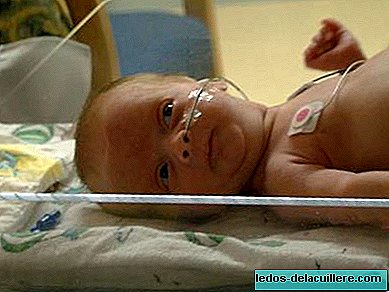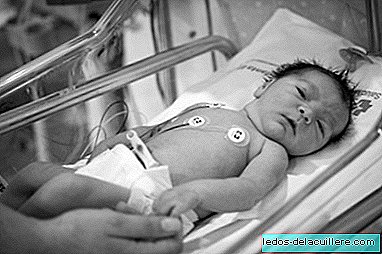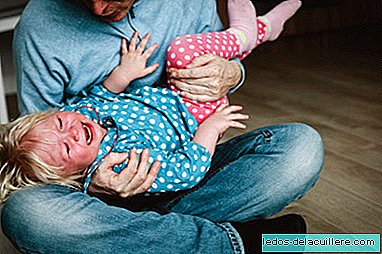
Sociological research “Young people and emancipation in Spain”, carried out by the FAD and Obra Social Caja Madrid, concludes a fact that we have all heard about on occasion: 'the current difficult economic situation is markedly accentuating the traditional Spanish model of youth emancipation, which is already late'
Let's see, I don't really think that the Spanish model of youth emancipation is late, it may be happening for 25 years, because even during the 60s and 70s, young people became independent around 20. Not to mention our grandparents: what happens is that at that time one lived more according to community structures with many links between the nuclear and the extended family, but 'getting out' of the parents' arms to form a new life, that they did soon.
According to the research, it seems that there are also other determining elements related to cultural characteristics, family models and public policies that contribute greatly to that, together with Italy, let's be the European country where young people later leave home.
The crisis affects two structural indicators that condition youth emancipation
The first indicator that influences is, without a doubt, the youth unemployment rate that reaches 52.1% and in which Spain is at the head of Europe together with Greece when in Germany it does not reach 8%.
The second is the house price that in the last decade has risen well above its real value. Despite stabilizing or lowering after 2008, the acquisition of a home still implies an indebtedness capacity above what is possible. Nor does rent seem to be an easy alternative since the young people who work must dedicate an average of 42% of their salary to be able to rent a house and only 55% of those and those young people who work can meet all their expenses .
The influence of our cultural characteristics
- Traditional family system: the process of emancipation, independence and autonomy of young people in Spain does not occur outside the family, but rather tends to occur within it, based on agreed strategies around the formative trajectories, the social class of reference and the labor and social expectations.
Translated: parents and children agree that it is not worth leaving home if it is to lose quality of life. This (I think) is a mistake because it prevents the development of personal projects, which must be started (obviously) from below
- Little tendency to the geographic mobility of the young Spaniards: although the crisis is modifying this tendency little by little. 23% of emancipated adults in Spain have “all” members of the consanguineous family (parents, siblings, children) with whom they do not live 30 minutes or less away.
This is not intrinsically negative, provided that everyone is able to respect the intimacy and intra-standards of newly created family groups.
Prioritization of emancipation oriented to the formation of the family itself against intermediate models, such as sharing apartments with acquaintances. Of the total of Spanish youth between the ages of 15 and 24, 7.3% of young people live married or in pairs. Those who live with friends or alone do not reach 3%.
Imaginary around the rental of housing very negatively connoted: It is interpreted as "throwing away" money, compared to the purchase.
And I would say very likely this vision about housing also inhibits the possibilities in terms of geographical mobility. In addition, in the times in which we are, with mortgages that are paid in 50 years, and whose interests go up ... at least living for rent gives some freedom, and it is true that the house is not one, but while it is being paid what we owe to the bank, neither is it.
- Absence of public policies that really bet on processes of empowerment and independence of young people, truly supporting the youth rental market, betting on emancipation aids, etc. In this post we detail the ILO Resolution that advocates immediate action by governments and partners.
And beyond the data, young people also have an opinion
According to research data, In general, between the ages of 18 and 20 there is no apparent need for emancipation, nor desire for it, both because of the difficulty of its materialization and because of having opened and built alternative spaces to it.
On the other hand, young people value the comfort they find with their parents and fear, in case of emancipation, losing status or material benefits. This loss of comfort appears as a deterrent or postponement for many young people who do not decide to make the leap from the family home until they have almost complete security of failure.
This situation is fully assumed and shared by parents who understand and accept the necessary domestic independence. (Specified in the absence of schedules, control or responsibilities at home) that your children claim for what they do not pose conflicts or discrepancies. They opt for permissiveness.
If this experience occurs (as the research indicates) between 18 and 20 years, then what do you want me to say !; the bad thing is when they turn 28 and still have no intention of leaving
After analyzing the discourse of young people, it seems that in these times it matures before, the destiny of life itself is sooner, it is decided without pressure with who and how to go out, what to study, etc. And at the same time, the opposite phenomenon also seems to occur, that of a infantilization propitiated by the fact that the demands, obligations and responsibilities are scarce. Mature for some things and more dependent and childish for others.
In any case, postpone or postpone the decision to emancipate it is a demonstration not of conformity or passivity but, in the conviction of the young people themselves, of adaptation to the circumstances. There seems to be evidence to show that, even in times of greater economic boom, the average age of emancipation in Spain has been higher than in other European countries, except for Italy (which shares a Mediterranean culture with Spain regarding the emancipation, as we have seen). I have said it before, I have the perception that this phenomenon has been going on for not too many years.












